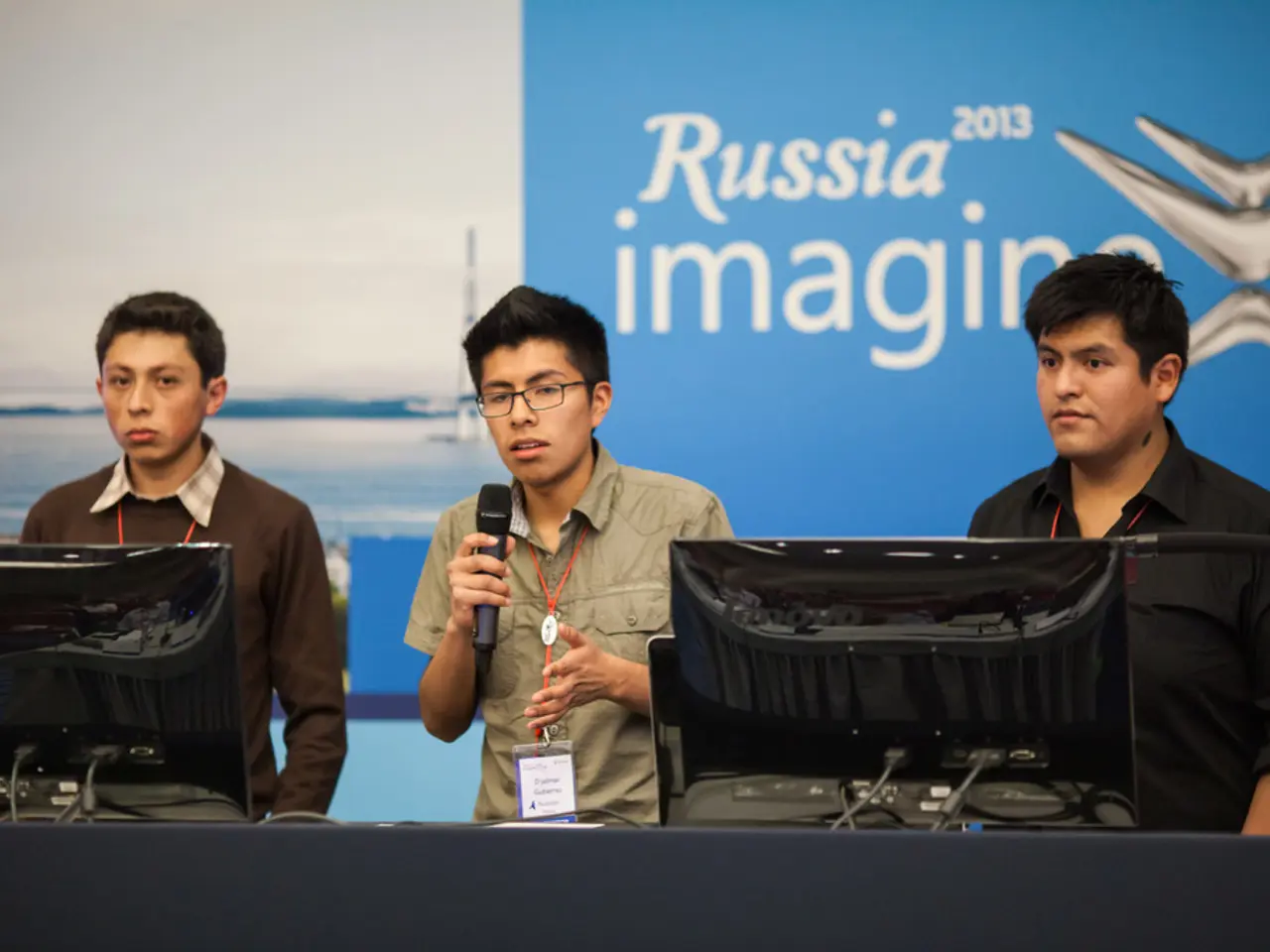UK pursues strengthening space weather predictions through Europe's inaugural solar storm detecting instrument
**UK-ODESSI: A Pioneering Space Weather Mission**
The United Kingdom is set to take a significant step in space weather observation and forecasting with the proposed UK-ODESSI (UK-Orbital pathfinDeR for Space-borne, Space-weather Instrumentation) satellite mission. This ambitious project, led by the UK, aims to enhance the country's capabilities in this critical area and position it as a leader in the global space weather community.
The mission's objectives are threefold. Firstly, it seeks to enhance space weather monitoring by filling key capability gaps in the UK and Europe through advanced instrumentation. Secondly, it plans to deploy a solar coronagraph, SCOPE, developed at the UK's Science and Technology Facilities Council's RAL Space. SCOPE is unique as it is the only solar coronagraph under development in Europe specifically for space weather operations. Thirdly, it includes a high-energy particle instrument, HEPI, from the University of Surrey, designed to measure energetic particles in space, key to understanding space weather effects.
UK-ODESSI also serves as a pathfinder for future UK-built space weather instruments. By successfully demonstrating the capabilities of homegrown technology in low-Earth orbit (LEO), the UK aims to pave the way for further developments in this field.
The strategic significance of UK-ODESSI lies in its potential to provide Europe and the UK with independent, sovereign monitoring capabilities for space weather. This move reduces reliance on US-operated assets amid uncertainties in America's scientific infrastructure. Accurate forecasting of Coronal Mass Ejections (CMEs) is essential for mitigating adverse effects of space weather on Earth's technology infrastructure, including satellites, power grids, and communication systems. By enhancing forecast lead times and observational coverage, UK-ODESSI would improve preparedness for solar storms and safeguard critical infrastructure.
The UK-ODESSI mission is principally sponsored by the Royal Astronomical Society (RAS) and Durham University. The project is scheduled to present its mission concept at the National Astronomy Meeting 2025 in Durham. The talk, titled 'UK-ODESSI: A Low-Cost, Low-Earth Orbit, In-Orbit Pathfinder for UK Space Weather Instrumentation', will take place on Wednesday, 9 July 2025, at 17:15 BST in room TLC101.
UK-ODESSI would use a small satellite platform from Surrey Satellite Technology Ltd (SSTL) in a sun-synchronous terminator orbit (~500-600 km altitude). HEPI, a high-energy particle instrument developed at the University of Surrey, is also part of UK-ODESSI's baseline payload. The Science and Technology Facilities Council (STFC) is the UK's largest public funder of research into astronomy and astrophysics, particle and nuclear physics, and space science.
In summary, UK-ODESSI represents a pioneering UK effort to develop and launch dedicated instruments for solar storm monitoring and space weather forecasting from low Earth orbit. This mission is crucial for Europe in gaining autonomous and improved capabilities that are vital for both scientific advancement and protective space weather mitigation strategies.
The UK-ODESSI mission, a crucial undertaking for the United Kingdom, incorporates technology developments by deploying a solar coronagraph, SCOPE, and a high-energy particle instrument, HEPI, in space. These advanced instruments are key to enhancing the country's capabilities in space-and-astronomy and technology.
The successful implementation of UK-ODESSI would not only position the UK as a leader in the global space weather community but also provide Europe with independent, sovereign monitoring capabilities, reducing reliance on US-operated assets in space-and-astronomy.




